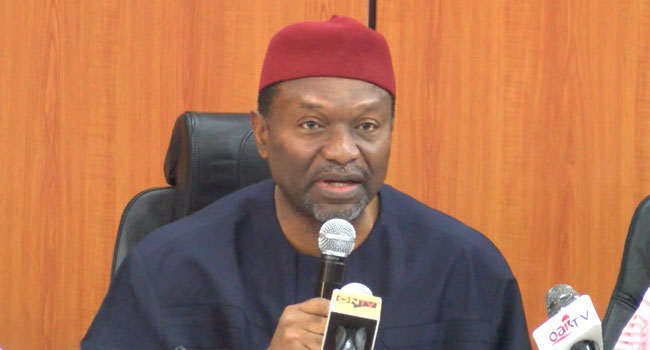The Federal Government said on Monday it will use a fraction of the
looted funds recovered so far to finance part of the 2017 budget.
The Minister of Budget and National Planning, Senator Udoma Udo Udoma, said this at the 2017 budget breakdown in Abuja.
He said the total revenue projected was N5.08 trillion, with 11 per cent coming from the recoveries made.
“On recoveries, we are being extremely conservative; what is in the
budget is what we know about already. So if more comes, we will use it.
Know that recoveries of looted funds are not the most dependable way to
finance the budget because of the legal processes that have to be
concluded before it can be spent. So, the money quoted in the budget is
the one we have already recovered and in our pocket to spend as we
wish.”
He said the total revenue projected exceeded the 2016 projection by
30.26 per cent, adding that oil revenue projection was put at 41.7 per
cent compared to 19 per cent in 2016.
Udoma added that the high revenue expectation from oil was driven by
Joint Venture Calls (JVC) cost reduction, higher production and price,
exchange rate as well as additional oil-related revenues.
According to him, Company Income Tax (CIT) will contribute 15.9 per
cent, Value Added Tax (VAT) 4.8 per cent, Independent Revenue 15.9 per
cent and others 5.2 per cent.
He also said the projected budget deficit which stood at N2.36
trillion remained relatively low at 2.18 per cent of the Gross Domestic
Product (GDP).
“This is within the 3 per cent threshold stipulated in the Fiscal
Responsibility Act (FRA). The budget is to be financed mainly by
borrowings which have been projected at N2.32 trillion. Of this amount,
N1.07 trillion is intended to be sourced externally, while N1.25
trillion will be sourced domestically.’’
Udoma stated that N35 billion is expected as revenue from the
outright sale of government property and privatisation of state-owned
enterprises.
He said to generate the projected revenue, the Federal Inland Revenue Service (FIRS)
and Customs had been challenged to improve their efficiency and broaden
their reach to achieve the set targets in the 2017 budget.
He said the Federal Government would strive to maximise the revenues
it could generate from the oil and gas sector because the foreign
exchange generated from the sector was critical for plans to diversify
to the non-oil sectors.
“It is important that we use what we have to get what we need and
want and what we have is oil. It is important that we make sure there is
peace in the Niger Delta so that we can achieve the maximum from that
resource, ” he said.
The N7.44 trillion budget was signed into law by the Acting President, Yemi Osinbajo, on June 12, a month after it was passed by the National Assembly.
Referred to as the ‘budget of recovery’, the budget was first
presented on December 14, 2016, to the two chambers of the National
Assembly by President Muhammadu Buhari at an estimate of N7.30 trillion.
The lawmakers, however, increased it by N143 billion.
Monday, 19 June 2017
Home
/
FG
/
Fund
/
Minister
/
Recovered Loot
/
FG to Fund Part of 2017 Budget with Recovered Loot – Minister
FG to Fund Part of 2017 Budget with Recovered Loot – Minister
Subscribe to:
Post Comments (Atom)





No comments:
Post a Comment